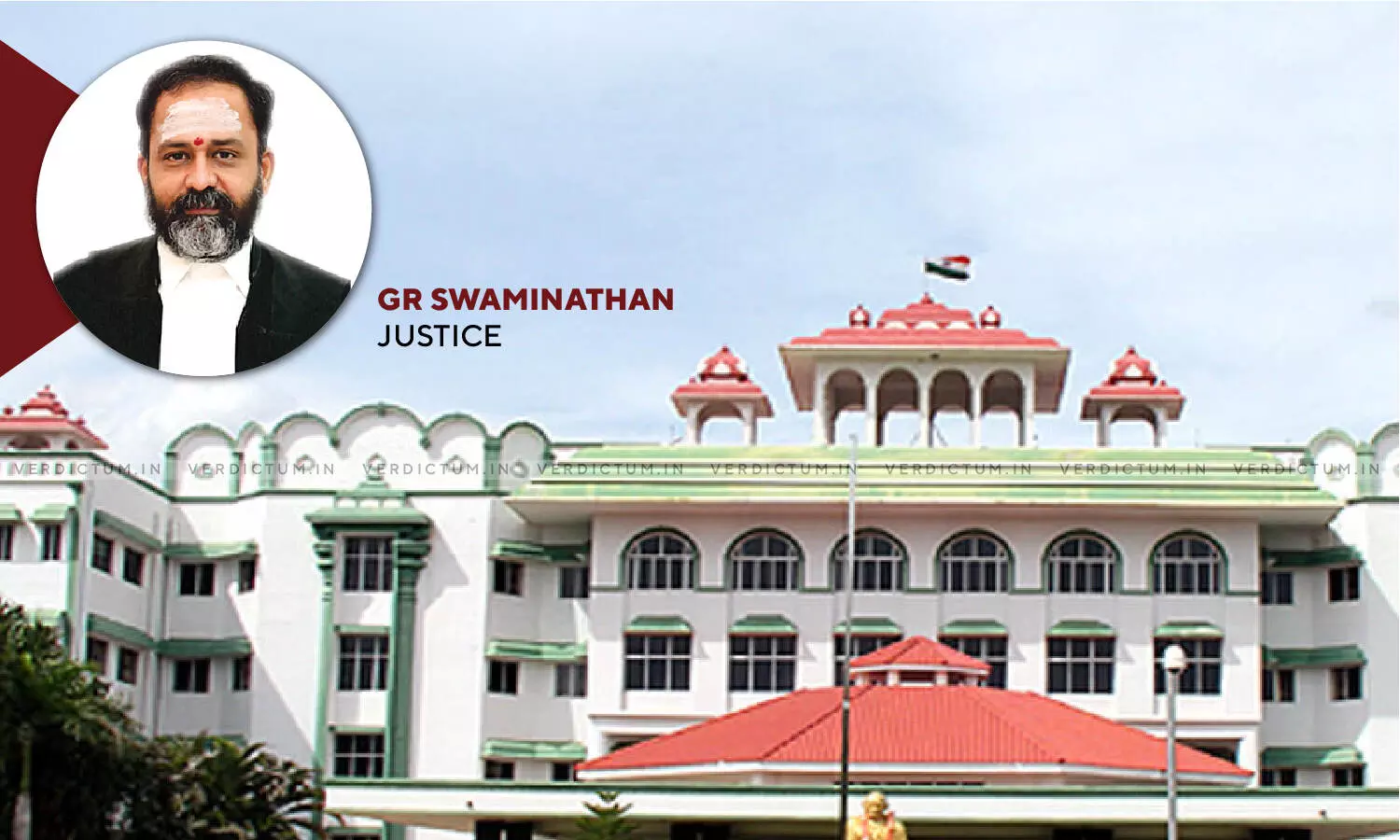
Invoking 'No Fault Liability' Principle, Madras HC Grants ₹5 Lakhs Compensation To Kin Of Man Who Died After Falling Into Pit
 |
|The Madras High Court Madurai Bench recently awarded compensation of Rs. 5 Lakhs to kin of a man who died after he fell into a pit dug on the road for the purpose of construction work being carried out by a contractor engaged by the government.
The Bench of Justice GR Swaminathan invoking the principle of ‘no fault liability’ noted that petitioner's son was entitled to use the public road while he was riding his two-wheeler and observed that “In these circumstances, I can very well without going into the question of negligence award compensation based on no fault liability approach.”
In this case, the plea was moved by the father of the deceased, wherein just and reasonable compensation of Rs. 50 Lakhs and a government job was sought. The Deceased used to work as a conductor in a private bus and while returning home, he fell into a pit that was dug for construction of bridge under Pradhan Mantri Scheme.
Advocate A. Rahul appeared for the petitioner and argued that the State was vicariously liable and was obliged to pay compensation, Advocate B. Deepa appeared for the Union, and Advocate P. Thiyagarajan appearing for the contractor-respondent no. 4 submitted that the necessary arrangements were made to warn the road users to take diversion and due to non-adherence to the warning signal to take a diversion, the occurrence had taken place.
The Court without going into the allegations of negligence leveled by the parties against each other, awarded compensation of Rs. 5 lakhs to the deceased’s family based on the ‘no fault liability’.
The Court said that the statutory scheme set out in the Motor Vehicles envisages no-fault liability approach and that even the Tamil Nadu Generation and Distribution Corporation also followed a policy where it awarded a sum of Rs.5 lakhs to the dependents of the deceased where the death took place due to electrocution, without going into the question of negligence.
The Court further said that the petitioner could very well withdraw the amount deposited by the contractor, without prejudice to his right to claim higher compensation and also granted liberty to the petitioner to institute a civil suit, if he wished to sought higher compensation amount.
Accordingly, the writ petition was partly allowed.
Cause Title- N.Annamalai v. Union of India & Ors.
Click here to read/download the Order